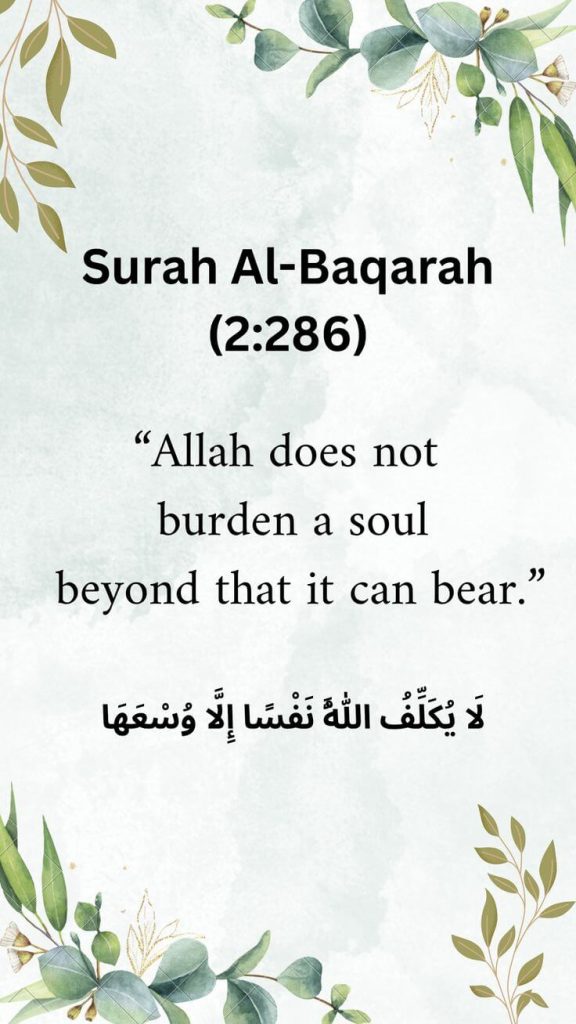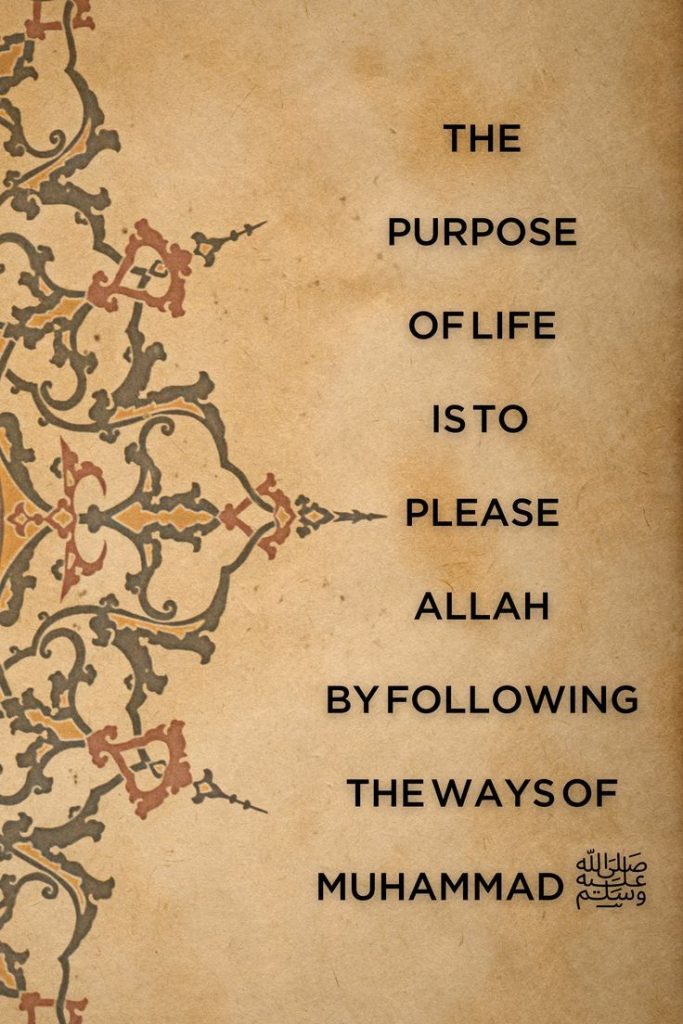Throughout the life path, each of us has times when the heart wants the courage, the mind wants the clarity, and the soul wants the peace. Islamic Quotes are the everlasting source of guidance and power during such times. The quotes are based on the wisdom of the Quran, the sayings of Prophet Muhammad {Salla Llahu Alayhi WaSallam,} and the wisdom of great scholars, which inspires people to be patient, hopeful, and positive in their daily lives.
At BluePicture, we painstakingly gather and dispatch genuine Islamic Quotes that offer us daily motivation and wisdom that is applicable in real life. You will find words to improve your faith as you are struggling with issues, seeking advice in love and relationships, or just seeking words that make you feel better about yourself. The quotes are not merely pronouncements of the Islamic values but also the means to make your day a bit more light, motivational, and balanced.
The Power of Words in Islam

In Islam, words are not just sounds or expressions; they carry weight, meaning, and accountability. The Qur’an and Hadith repeatedly remind believers that every word spoken is recorded and can have lasting effects on both the speaker and the listener.
The Qur’an says:
“Not a word does he utter but there is a watcher by him ready (to record it).” (Surah Qaf 50:18)
This verse highlights that speech is never insignificant. Every word will be accounted for on the Day of Judgment, which shows the responsibility Muslims have over their tongues.
The Prophet Muhammad ﷺ also emphasized the importance of speech. He said:
“Whoever believes in Allah and the Last Day, let him speak good or remain silent.” (Bukhari & Muslim)
This teaching shows that silence is better than harmful or meaningless talk. A believer’s tongue should be a source of truth, kindness, and wisdom.
Words can heal or hurt, unite or divide, guide or mislead. In Islam, a kind word is considered an act of charity (sadaqah). A harsh word, on the other hand, can wound hearts and destroy relationships.
Thus, the power of words in Islam is immense. They are tools for expressing faith, spreading peace, and building trust. At the same time, they are a test of self-control, sincerity, and responsibility.
Islamic Quotes from the Qur’an
The Quran is the supreme book of Muslims. It is not a book of laws and rituals but rather a treasure of wisdom, comfort, and inspiration. Its poems speak straight to the heart of the believer with the message of patience, mercy, thankfulness, and hope.
The following are some of the chosen quotations in the Quran and their meaning expounded:
Patience (Sabr)
“Indeed, Allah is with the patient.” (Qur’an 2:153)
This verse encourages the believers that Allah will always support them when they face their troubles. Islam does not talk of passive waiting in suffering, but rather about active waiting in the plan of Allah.
Hope in Allah’s Mercy
“Do not despair of the mercy of Allah. Indeed, Allah forgives all sins.” (Qur’an 39:53)
Here Allah reminds us that no matter how great a person’s sins may be, His mercy is greater. It inspires hope and prevents despair.
Gratitude (Shukr)
“If you are grateful, I will surely increase you [in favor].” (Qur’an 14:7)
Gratitude is shown as a key to blessings. When believers appreciate what they have, Allah promises even more.
Trust in Allah (Tawakkul)
“And whoever relies upon Allah – then He is sufficient for him.” (Qur’an 65:3)
This verse teaches that true reliance on Allah brings peace of mind. When one trusts Allah fully, fear and worry lose their grip.
Kindness in Speech
“And speak to people good words.” (Qur’an 2:83)
The Qur’an reminds believers that good speech is part of faith. Words can heal hearts, build relationships, and spread peace.
Islamic Quotes from Hadith (Sayings of Prophet Muhammad ﷺ)

The Hadith literature preserves the teachings, advice, and wisdom of Prophet Muhammad ﷺ. His words are a mirror of mercy and justice, guiding Muslims on how to build good character, maintain family bonds, and treat others with kindness. They are not abstract ideas but practical lessons for everyday life.
Excellence in Character
The Prophet ﷺ said:
“The most complete of believers in faith are those with the best manners.” (Abu Dawood)
This Hadith places good manners at the heart of true faith, showing that belief is reflected in behavior.
Respect in Family Life
He ﷺ taught:
“The most perfect of believers in faith are those who are best in conduct and the kindest to their families.” (Tirmidhi)
Here, the Prophet ﷺ highlights that kindness begins at home and that family deserves the best of one’s character.
Spreading Mercy
He ﷺ said:
“The merciful will be shown mercy by the Most Merciful. Be merciful to those on earth, and the One above the heavens will be merciful to you.” (Abu Dawood, Tirmidhi)
Mercy in dealings with others attracts Allah’s mercy — a reminder that compassion is central to faith.
True Brotherhood
The Prophet ﷺ declared:
“A believer is like a building for another believer, each part strengthening the other.” (Bukhari & Muslim)
This Hadith describes the unity of Muslims as a structure, showing that mutual support is essential to a strong community.
Guarding the Tongue
He ﷺ advised:
“Let your words be good, or remain silent.” (Musnad Ahmad)
The Prophet ﷺ valued silence over harmful talk, teaching self-control and wisdom in speech.
Thematic Islamic Quotes for Daily Inspiration

Below are key life themes with a representative Islamic quote (Qur’an or Hadith), followed by a focused explanation and a brief note on how that teaching can be lived daily.
Patience & Perseverance
Quote: “Indeed, Allah is with the patient.” (Qur’an 2:153)
Explanation: Patience (sabr) in Islam is active endurance — it blends calm acceptance with purposeful effort and trust in God’s wisdom. The verse reassures believers that patience is not unnoticed; it brings divine nearness and support. Patience shapes the soul to withstand loss, delay, or hardship without despair, transforming trials into spiritual growth.
Practice: When facing difficulty, respond with steady action (seek solutions), persistent prayer, and quiet acceptance of what cannot be changed.
Hope & Divine Mercy
Quote: “Do not despair of the mercy of Allah.” (Qur’an 39:53, paraphrase)
Explanation: This teaching breaks the trap of hopelessness. Islam emphasizes that Allah’s mercy surpasses human faults; repentance and return are always possible. Hope reorients a person from guilt and paralysis toward renewal and constructive change.
Practice: After recognizing a mistake, commit to sincere repentance, practical correction, and renewing good habits rather than sinking into despair.
Gratitude (Shukr)
Quote: “If you are grateful, I will surely increase you [in favor].” (Qur’an 14:7)
Explanation: Gratitude is an active spiritual stance—counting blessings, acknowledging their source, and responding with praise or right conduct. The promise of increased links inner thankfulness to outward blessing: gratitude expands perspective and invites further good.
Practice: Daily note small blessings, say brief thanks, and use resources and talents in ways that reflect appreciation.
Trust in God (Tawakkul)
Quote: “And whoever relies upon Allah — then He is sufficient for him.” (Qur’an 65:3)
Explanation: Tawakkul is not passive fatalism; it is reliance after exertion. One takes lawful means, then rests one’s outcomes with Allah. This trust reduces anxiety because ultimate results are placed in God’s hands while one remains responsible in effort.
Practice: Make plans and take steps, then consciously surrender worry through prayer and acceptance of whatever follows.
Good Character & Kindness
Quote: “The best among you are those who have the best manners.” (Hadith, Bukhari)
Explanation: Islam centralizes moral conduct. Faith is shown through humility, honesty, patience, and respectful treatment of others. The Prophet’s teaching elevates etiquette and compassion as marks of a mature believer.
Practice: Prioritize gentle speech, honest dealings, and small acts of service; measure success by character, not only by achievement.
Brotherhood & Empathy
Quote: “None of you truly believes until he loves for his brother what he loves for himself.” (Hadith)
Explanation: True faith requires empathy and active concern for others’ welfare. This instruction moves belief from private conviction to social responsibility: a community’s strength depends on mutual care.
Practice: Seek others’ benefit in choices; avoid envy and cultivate generosity—materially and emotionally.
Forgiveness & Returning to God
Quote: “Indeed, Allah loves those who are constantly repentant.” (Qur’an 2:222, concise sense)
Explanation: Repentance is honored and expected; it keeps the heart humble and open to reform. Forgiving others mirrors divine forgiveness and heals relationships. Islam teaches that seeking and granting forgiveness renew moral life.
Practice: Admit wrongs promptly, ask pardon from God and people, and forgive others to break cycles of resentment.
Strength in Trials (Tests of Life)
Quote: “We will surely test you with something of fear and hunger and loss… but give good tidings to the patient.” (Qur’an 2:155, core idea)
Explanation: Tests are framed as part of human existence—opportunities to refine faith and character. The response of patience, gratitude, and reliance converts suffering into a means of elevation rather than mere misfortune.
Practice: Reframe hardship as temporary and formative; seek community support, maintain prayer, and keep purposeful routines.
Seeking Knowledge & Reflection
Quote: “Allah will raise those who believe and those given knowledge in degrees.” (Qur’an 58:11)
Explanation: Knowledge is an honored path in Islam because it clarifies duties and deepens faith. Learning combined with reflection (tafakkur) turns information into wisdom that guides choices and behavior.
Practice: Regular study, thoughtful reading of scripture with context, and applying learned lessons to daily conduct.
Practical Inspiration & Daily Reminders
Quote: (Representative principle from Qur’an/Hadith: speak good or remain silent)
Explanation: Short, repeatable reminders—words of prayer, brief verses, prophetic maxims—serve as daily anchors. They reorient the heart in small moments before words or actions cause harm or drift.
Practice: Keep a short list of personal quotations for morning reflection, phone wallpaper, or a note by the door to prompt mindful conduct.
How to Use Islamic Quotes in Daily Life

Islamic quotes are not meant only to be read occasionally; their true impact comes when they are woven into the rhythm of everyday life. The Qur’an and Hadith emphasize remembrance (dhikr), reflection, and constant reminders that keep the heart connected to Allah. Here are ways these quotes can be used practically:
Morning and Evening Reflection
Start and finish the day with a short verse or a Hadith. This predisposes patience, thankfulness, and concentration. A confirmation like, “Definitely, Allah is with the patient,” can train the mind to meet the challenges before them.
Personal Journaling
Recording one quote daily and reflecting briefly on the quote is useful in making the lesson internal. In the long run, this forms a kind of personal guidebook of inspiration through personal experiences.
Conversations and Family Life
Values are ingrained through the introduction of subtle reminders in a family dialogue or in the upbringing of children. A kind or respectful hadith may be told during meals or on an occasion.
Social Media and Digital Sharing
Posting the useful quotes on such platforms as WhatsApp or Instagram disseminates knowledge and makes people think in broader circles. This makes normal communication a reminder of some benefit (naseeha).
Workplace and Study Motivation
To remain upright, disciplined, and relaxed during stressful situations, it may be useful to have a verse about trust or perseverance in a workspace. Faith words bring harmony to workplaces that are filled with time constraints and rivalry.
Acts of Worship
A question may be added to supplication or meditation. An example is when one repeats verses of hope or forgiveness when praying to enhance sincerity and humility.
The Benefits of Reading the Islamic Quotes Regularly

The habit of always reading Islamic quotations is not only inspirational, but also a spiritual food. There are reminders of the Quran and the Hadith that remind the heart, discipline the tongue, and elevate the soul. When these quotes are reviewed regularly, they influence more than just one aspect of life.
Strengthening Faith (Iman)
Constant reminders root the heart of the believer in faith and confidence. A verse of patience or a hadith of hope supports the belief that the trials in life are not in vain and are controlled by Allah. It is this exposure that makes one even more attached to faith.
Healing and Resilience of the Emotions.
Mercy, forgiveness, and hope words give solace in times of grief, stress, or challenging times. They also offer a point of view, making the believer remember that the hardships will not last long and that God will support him.
Chairing Character and Behavior.
The moral decision-making processes are influenced by the reading quotes concerning honesty, kindness, or humility. One verse or word of wisdom may avert wrath, perjury, or cruelty when recalled at the right time, and may instead stimulate gentleness.
Promoting Good Practices.
The daily practice of being good: grateful, forgiving, generous, patient, etc., is motivated by the consistent exposure to meaningful, short reminders. These practices eventually become instinctive to a believer.
Building Hope and Optimism
The Islamic quotations help one shift the mindset to having hope rather than despair in the virtues of the wisdom and mercy of Allah. The habitual reading makes the difference such that when one is in trouble, he or she will have a hopeful attitude instead of descending into hopelessness.
Strengthening Relationships
Family, community, and brotherhood teachings are useful to enhance interactions. Empathy and togetherness in families and communities are developed by remembering the advice given by the Prophet to people to show kindness to others, as it was advised to them by the Prophet, Salu Alayhi WaSallam.
Constant Adoration (Dhikr)
All the retellings of a verse or Hadith constitute remembering Allah. It is this regular dhikr that pacifies the heart, as stated in the Quran: “Surely in the remembrance of Allah do hearts rest. (Qur’an 13:28)
Exchanging Islamic Quation as a Sadaqah Jariyah

Sadaqah Jariyah is in the Islamic religion, a continuous charity, an act for the reward which does not end when a person dies. Prophet Muhammad Salla Llahu Alayhi WaSallam quoted:
When one passes away, all his actions cease except three: the continuing charity, the history of advantageous knowledge, and a righteous child, who supplicates on his behalf. (Muslim)
Exchange of Islamic quotes is beneficial knowledge. A mere verse or Hadith shared can go to the heart of a person, motivate him to change or to do good things. Whenever this knowledge turns out to be beneficial to another individual, the one who has shared it will be rewarded constantly.
Sharing Through Technology
Shared guidance on WhatsApp, Instagram, or other platforms through posting meaningful quotes goes far beyond individual circles. Every individual reader who makes use of it contributes to the reward of the sharer.
Training of Children and Students.
Memorization of the Quran or Hadith in short quotes is a habit-forming teaching among the young ones. The reward goes to the teacher when they apply those teachings in their lives.
Reminders via print and electronic.
By posting quotes on posters, calendars, or even the computer desktop, the rest of the world can be exposed to wisdom in everyday life. These reminders silently lead the hearts to the level of contemplation.
Why you will find BluePicture the best source of Islamic Quotes

In the world of an unlimited flow of information, not all sources are trustworthy, genuine, or user-friendly. BluePicture will be fashioned in a manner that is credible and easy to access. This is the reason why it can be your first stop in seeking Islamic quotes:
Authenticity First
BluePicture values accuracy. The quotes taken are well chosen in the Quran and authentic Hadith so that the readers can have confidence in what they are reading and sharing.
Organized and Accessible
BluePicture does not have quotes randomly placed; instead, the quotes are included in coherent themes, including patience, gratitude, love, mercy, and faith. This ensures that it is easy to get the correct words at the correct time.
Daily Relevance
The platform is dedicated to quotes that can relate to real life. BluePicture has the words that can be addressed directly to the real-life scenarios, whether you need to be guided through the hardship, motivated to work, or get inspired to live a family life.
A Source for Sharing
As Islamic quotes are also considered a kind of valuable knowledge, BluePicture invites its readers to communicate them. The text is clear and well thought out, thus making it easy to share reminders between friends, families, and online social circles.
Commitment to Inspiration
The mission of BluePicture is not to get quotes but to make a place where faith and positivity collide. It aims to be a daily companion, it says words which guide the heart and strengthen the spirit.
Closing Reflection
BluePicture is a trusted and motivating source of Islamic quotes – with truthfulness, lucidity, and applicability in everyday life. It is not just a compilation of words; it is the resource that helps to make wisdom alive in the contemporary world.
Conclusion
Islamic Quotes are not mere words, but eternal reminders that would feed the heart, help in faith, and give direction for action. These quotes are based on the Quran and on the statements of Prophet Muhammad {Salla Llahu Alayhi WaSallam, and provide wisdom daily on the matter of being patient, grateful, loving, and trusting Allah. Islamic Quotes serve as an example of a light in the dark that reunites believers with hope and positivity in the contemporary life of hurly-burly and stressfulness.
They give us spiritual reinforcements and, at the same time, offer practical teachings, as we should remember that the direction of Allah is there in any sphere of life. Be it an epistle of mercy or a Hadith of good character or a word to have faith in Allah, these quotes are rich with the meaning that evokes change and development.
We are convinced that this wisdom should be made available to all at BluePicture. Through gathering the actual and impactful IslamicQuotes, we want to build an environment where inspiration is brought to everyday life. Every quote is chosen to aid you in reflecting, sharing, and putting into practice the teachings of Islam in a simple and yet effective manner. By reading and sharing these quotes, you are not only motivating yourself but also sharing helpful knowledge – a Sadaqah Jariyah.
